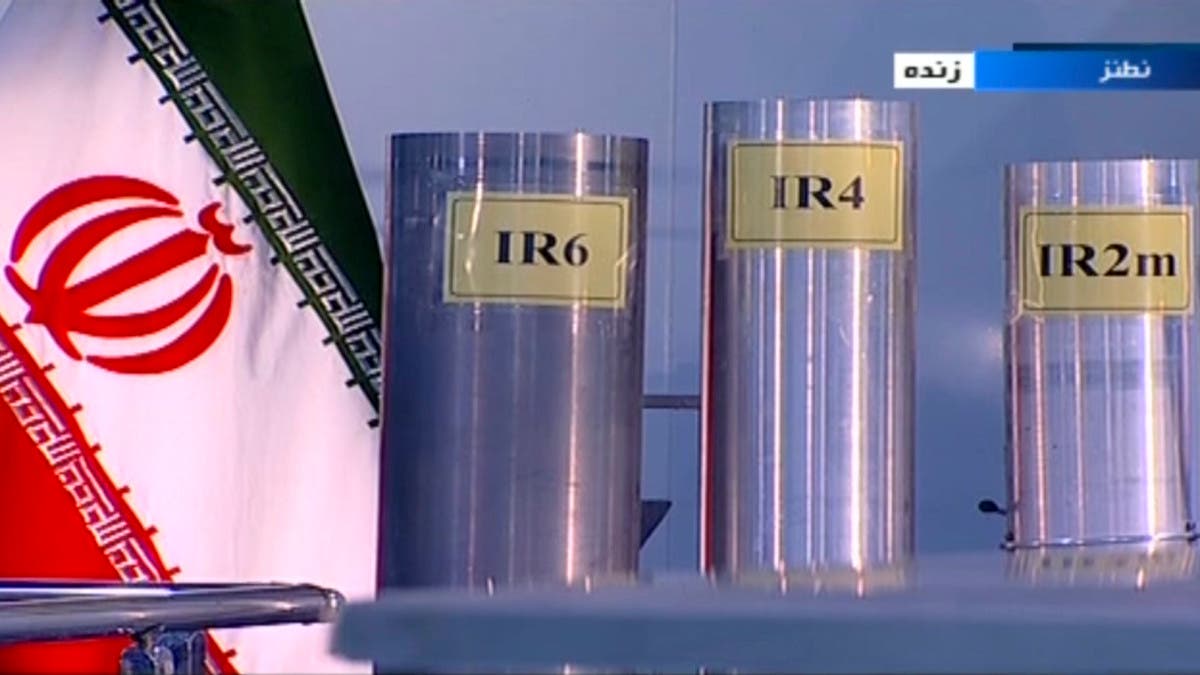Iran has started producing enriched uranium with more efficient advanced centrifuges at its Fordow plant dug into a mountain, the UN atomic watchdog said on Wednesday, further eroding the 2015 Iran nuclear deal during talks with the West on saving it.
The announcement appeared to undercut indirect talks between Iran and the US on bringing both fully back into the battered deal that resumed this week after a five-month break prompted by the election of hardline President Ebrahim Raisi.
Western negotiators fear Iran is creating facts on the ground to gain leverage in the talks.
For the latest headlines, follow our Google News channel online or via the app.
On the third day of this round of talks, the International Atomic Energy Agency (IAEA) said Iran had started the process of enriching uranium to up to 20 percent purity with one cascade, or cluster, of 166 advanced IR-6 machines at Fordow. Those machines are far more efficient than the first-generation IR-1.
Underlining how badly eroded the deal is, that pact does not allow Iran to enrich uranium at Fordow at all. Until now it had been producing enriched uranium there with IR-1 machines and had enriched with some IR-6s without keeping the product.
It has 94 IR-6 machines installed in a cascade at Fordow that is not yet operating, the IAEA said in a statement.
A more comprehensive IAEA report circulated to member states and seen by Reuters said that as a result of Iran's move the nuclear watchdog planned to step up inspections at the Fordow Fuel Enrichment Plant (FFEP) that houses the centrifuges, but the details still need to be ironed out.
Iran and major powers are trying to revive the 2015 deal under which Tehran limited its nuclear program in exchange for relief from US, EU and UN economic sanctions.
Then-US President Donald Trump abandoned the deal in 2018 and reimposed harsh US sanctions, angering Iran and dismaying the other parties: Britain, China, France, Germany and Russia.
This week's indirect talks between Tehran and Washington – with others shuttling between them because Iran refuses to meet US officials – have made no visible progress.
Iran's foreign ministry spokesperson on Wednesday accused Israel of “trumpeting lies to poison” the talks.
While it was unclear what the spokesperson was referring to, a Tel Aviv-based reporter for US news organization Axios on Monday reported Israel had shared intelligence over the past two weeks with the United States and European allies suggesting Iran was taking technical steps to prepare to enrich uranium to 90 percent purity, the level needed for a nuclear weapon.
Iran says its nuclear program is for purely peaceful purposes.
On Tuesday, Israeli Foreign Minister Yair Lapid said Iran was trying to buy time to advance its nuclear program and major powers needed to come up with a different approach.
“Sanctions must be reinforced and there needs to be a credible military threat because that it is the only thing that will prevent Iran from carrying out its race for a nuclear weapon,” Lapid said.
Read more:
Explainer: What remains of the Iran nuclear deal as talks resume?
Iran nuclear deal talks resume in Vienna amid muted hopes
US to exert pressure on Iran if it uses Vienna talks to boost nuclear program: Envoy

 World3 years ago
World3 years ago
 World2 years ago
World2 years ago
 Entertainment7 years ago
Entertainment7 years ago
 World7 years ago
World7 years ago
 Entertainment7 years ago
Entertainment7 years ago






